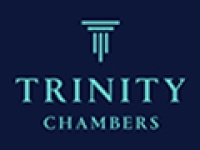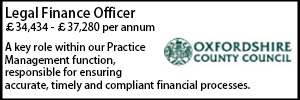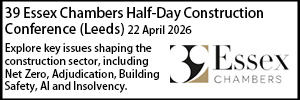Report urges Bar Standards Board to tackle systemic obstacles to tech uptake
- Details
The inconsistent use of technology at the Bar is driven by structural factors such as limited funding, time constraints, and the self-employed nature of the profession, a report for the Bar Standards Board has found.
Consultant firm Spinnaker Research issued its report to the board late last month, setting out a number of recommendations for the body to help assist technology adoption among barriers.
The report concluded that the ad hoc and varied adoption of technology and innovation at the Bar "is not an issue of barristers who participated lacking capability or confidence, or being impeded by regulatory barriers, but is largely due to structural market characteristics".
These characteristics include limited funding and expertise in chambers, highly individual and autonomous workflows among barristers, lack of time to consider adopting new technology, and limited external pressure to change, the report said.
It also noted that the self-employed nature of the profession made it difficult to centralise technology for efficiency gains.
However, the report said there is a growing recognition of opportunities to streamline various aspects of barristers' workflows.
"Tasks like time and billing, client onboarding, compliance questionnaires from law firms, evidence review, and creating chronologies are areas where barristers acknowledged that technology could significantly enhance efficiency", the report said.
Overall, barristers reported that the benefits of technology adoption included improving working processes, increasing transparency, reducing document overload, fairer and easier allocation of work, and improving data security.
They also listed improving equality, diversity and inclusion (EDI) outcomes, delivering work at speed, reducing environmental impacts, and increasing profitability as positives.
Elsewhere, the report said barristers are using Artificial Intelligence (AI) "thoughtfully and cautiously, with barristers recognising its potential to enhance their work rather than replace the human elements that define the profession".
It noted that while AI is expected to make welcome contributions to certain tasks including legal research, document drafting, summarising, transcribing and organising data such as chronologies and evidence, "it is seen as a tool that will support and complement the expertise, judgment and skills of barristers".
The report said that the Bar Standards Board has a "unique" role to play in setting the standards for best practice and to overcome the systemic barriers to effective technology adoption among barristers.
To assist this, the report made 10 recommendations, which included calls for the Bar Standards Board to "drive greater collaboration and standardisation", foster collaboration and innovation with technology providers, invest in technology training and facilitation, and create a roadmap for adopting new technology.
The report said: "Embracing technology and seeking efficiencies where appropriate is a way that barristers can drive a better and more efficient service for clients.
"While legal regulators and professional bodies have played a supportive role, there is more they can do to help barristers to realise the benefits of technology and innovation, especially as we recognise that technology does not have to be disruptive or innovative to be impactful."
Adam Carey
Child Care Lawyer
Commercial Lawyer
Legal Director - Government and Public Sector
Locum roles
 European Data Protection & Privacy Programme Management - DPO Ready - The Training Centre
European Data Protection & Privacy Programme Management - DPO Ready - The Training Centre
23-02-2026
Online (live)
 Safeguarding Issues and Fairness in Investigations and Hearings - 3PB
Safeguarding Issues and Fairness in Investigations and Hearings - 3PB
24-02-2026 11:00 am
Online (live)
 Children and Young People (DoL, Competency and Capacity) - Peter Edwards Law Training
Children and Young People (DoL, Competency and Capacity) - Peter Edwards Law Training
25-02-2026
Online (live)
 Court of Protection Property and Financial Affairs Webinar Series: Contested Statutory Will Application - 39 Essex Chambers
Court of Protection Property and Financial Affairs Webinar Series: Contested Statutory Will Application - 39 Essex Chambers
02-03-2026
Online (live)
 Housing and Homelessness Conference - Birmingham 2026 - 4-5 Gray's Inn Square
Housing and Homelessness Conference - Birmingham 2026 - 4-5 Gray's Inn Square
03-03-2026 9:30 am
East Midlands
 Law Enforcement Data Processing and Part 3 of the DPA 2018 - Act Now
Law Enforcement Data Processing and Part 3 of the DPA 2018 - Act Now
05-03-2026 10:00 am
Online (live)
 Cross-Border Placements of Children - Justin Gray, Trinity Chambers
Cross-Border Placements of Children - Justin Gray, Trinity Chambers
05-03-2026 3:00 pm
Online (live)
 Grappling with S73 - variations of conditions applications or appeals - Ivy Legal
Grappling with S73 - variations of conditions applications or appeals - Ivy Legal
09-03-2026
Online (live)



























































































































 Planning Law Update Wales for Local Authorities and Other Government - FTB
Planning Law Update Wales for Local Authorities and Other Government - FTB  The Procurement Act - One Year On - DWF
The Procurement Act - One Year On - DWF  The ERA – An Overview - Sharpe Pritchard
The ERA – An Overview - Sharpe Pritchard  Roundtable Event: Risks arising from Inquests and Legal Update - Devonshires
Roundtable Event: Risks arising from Inquests and Legal Update - Devonshires  The General Data Protection Regulation - Act Now
The General Data Protection Regulation - Act Now 